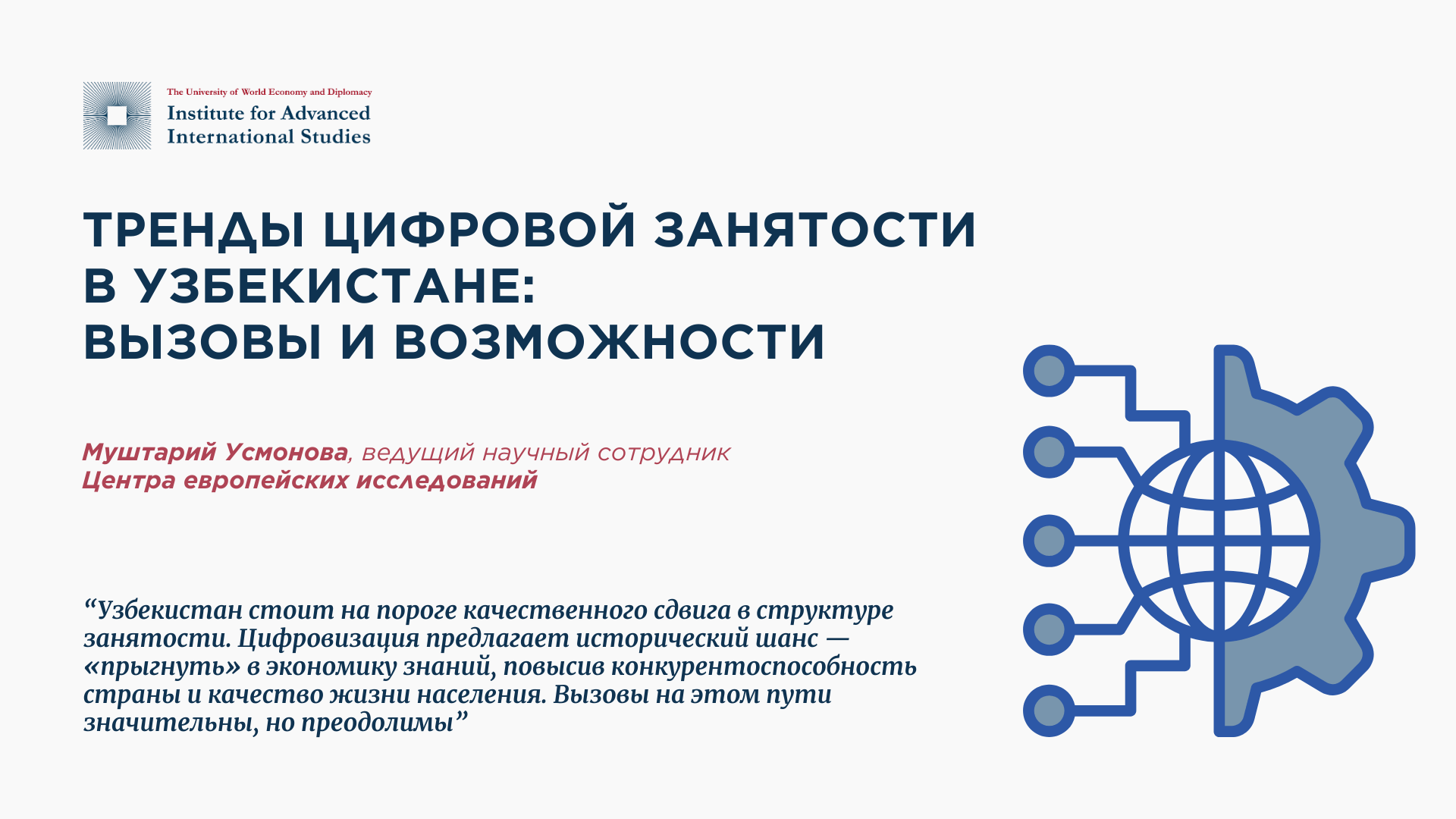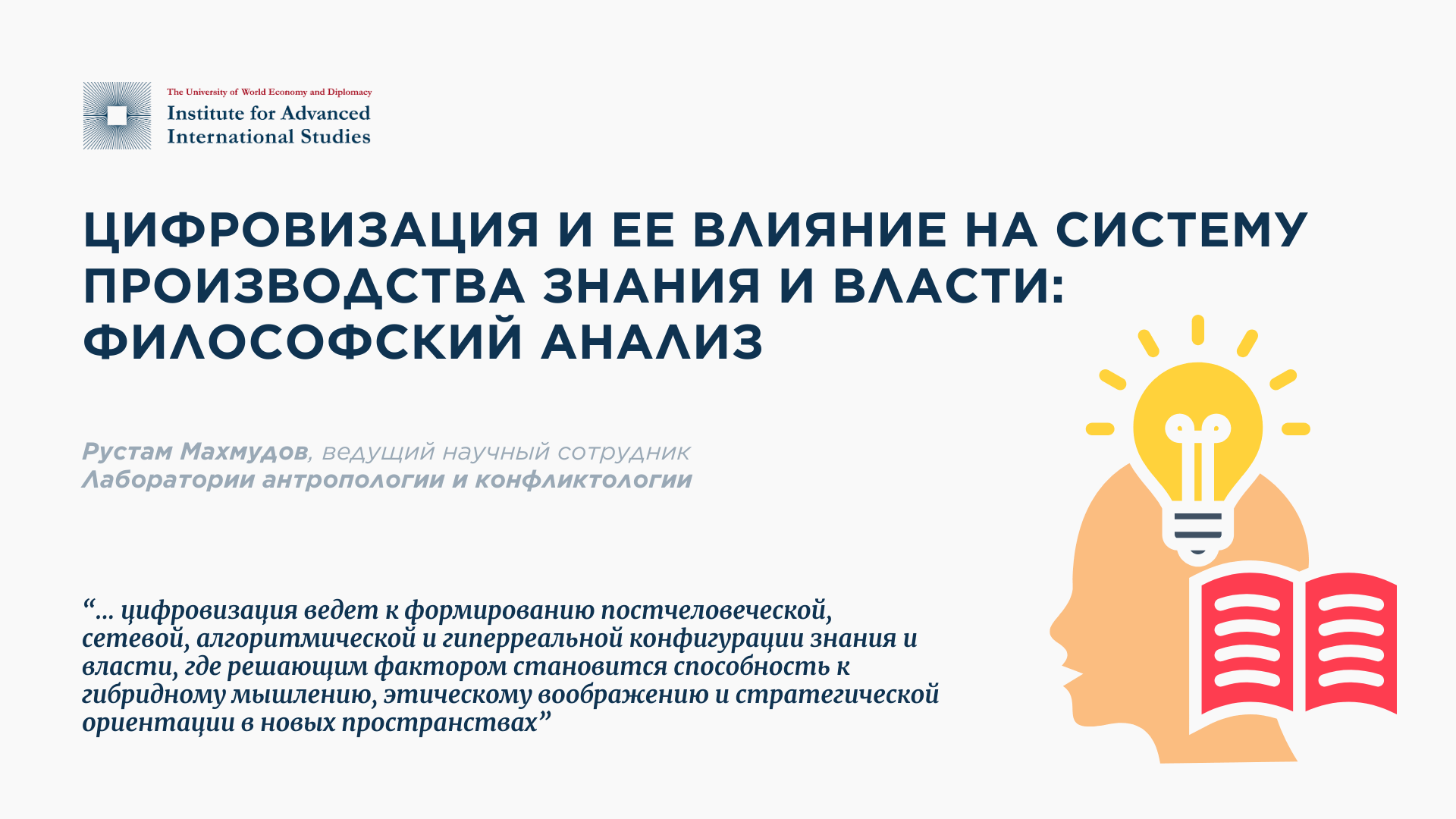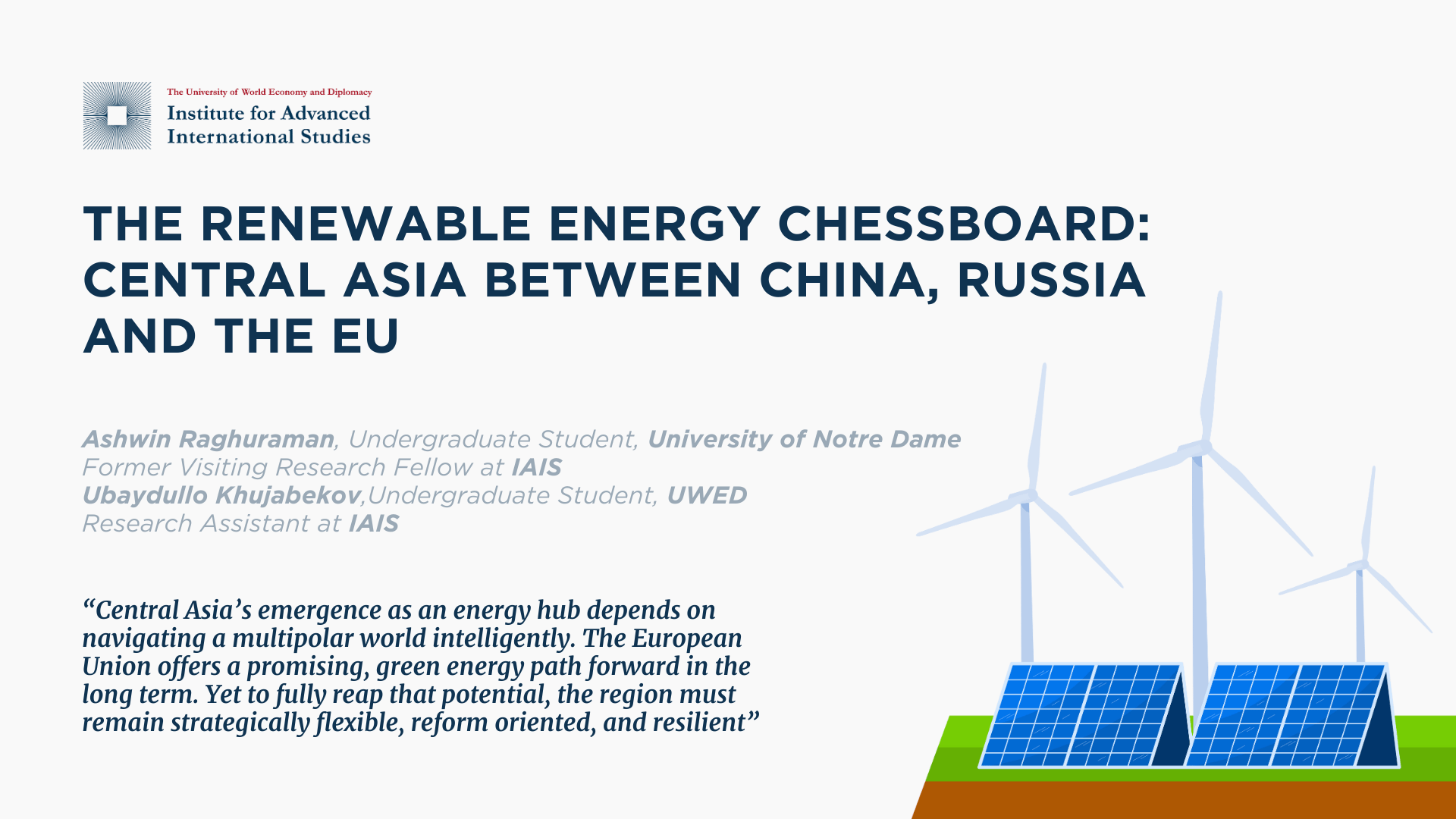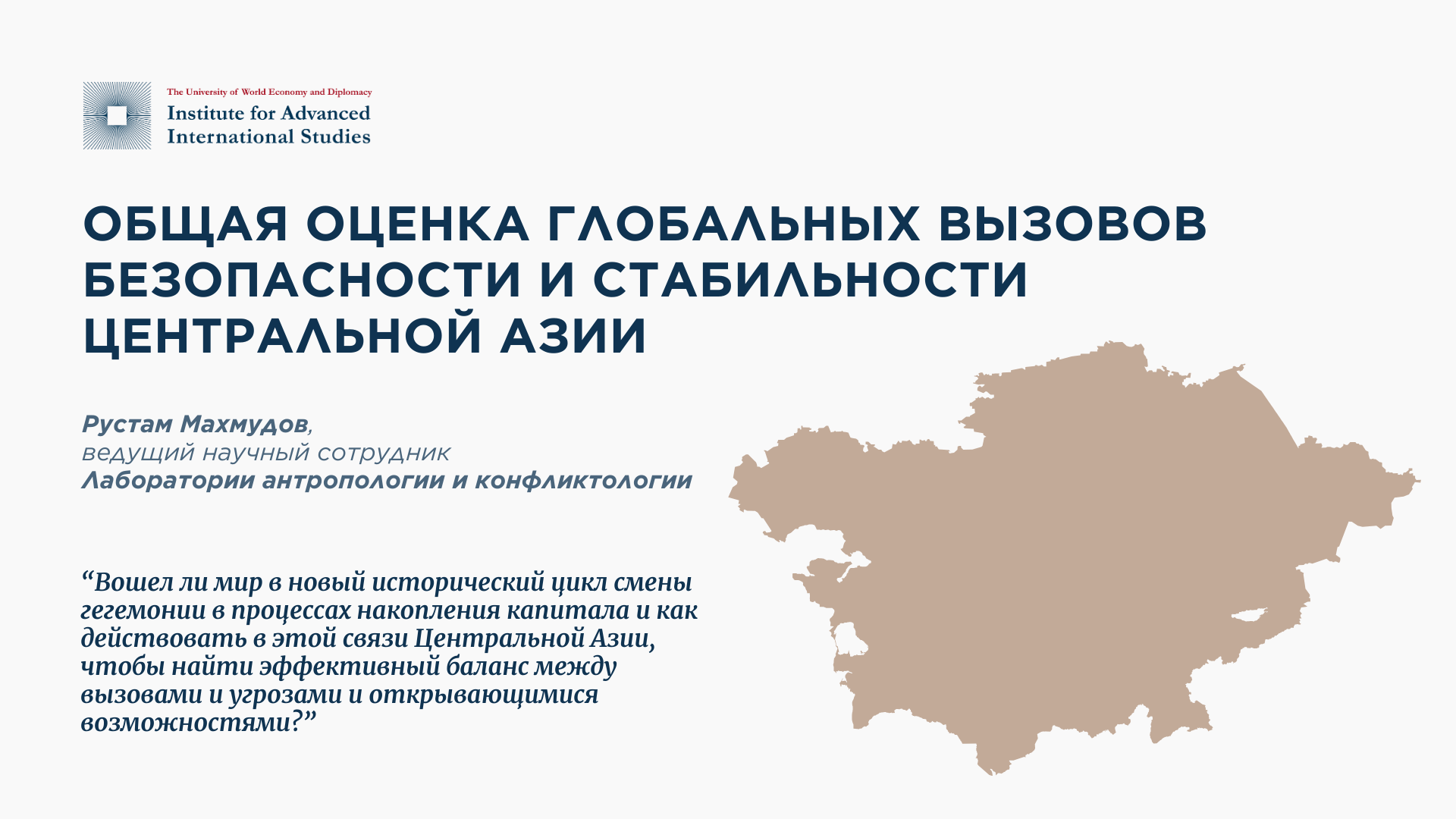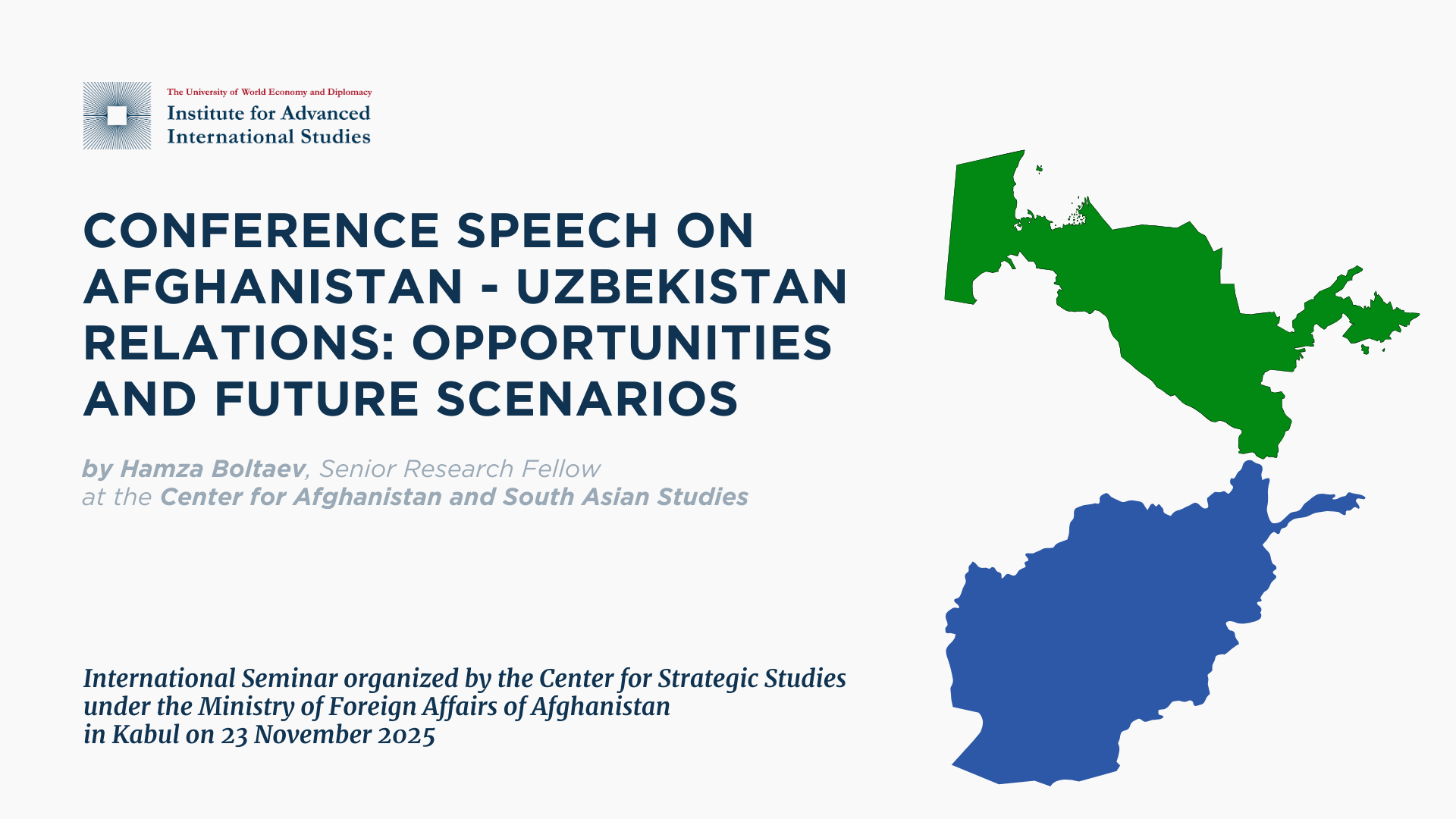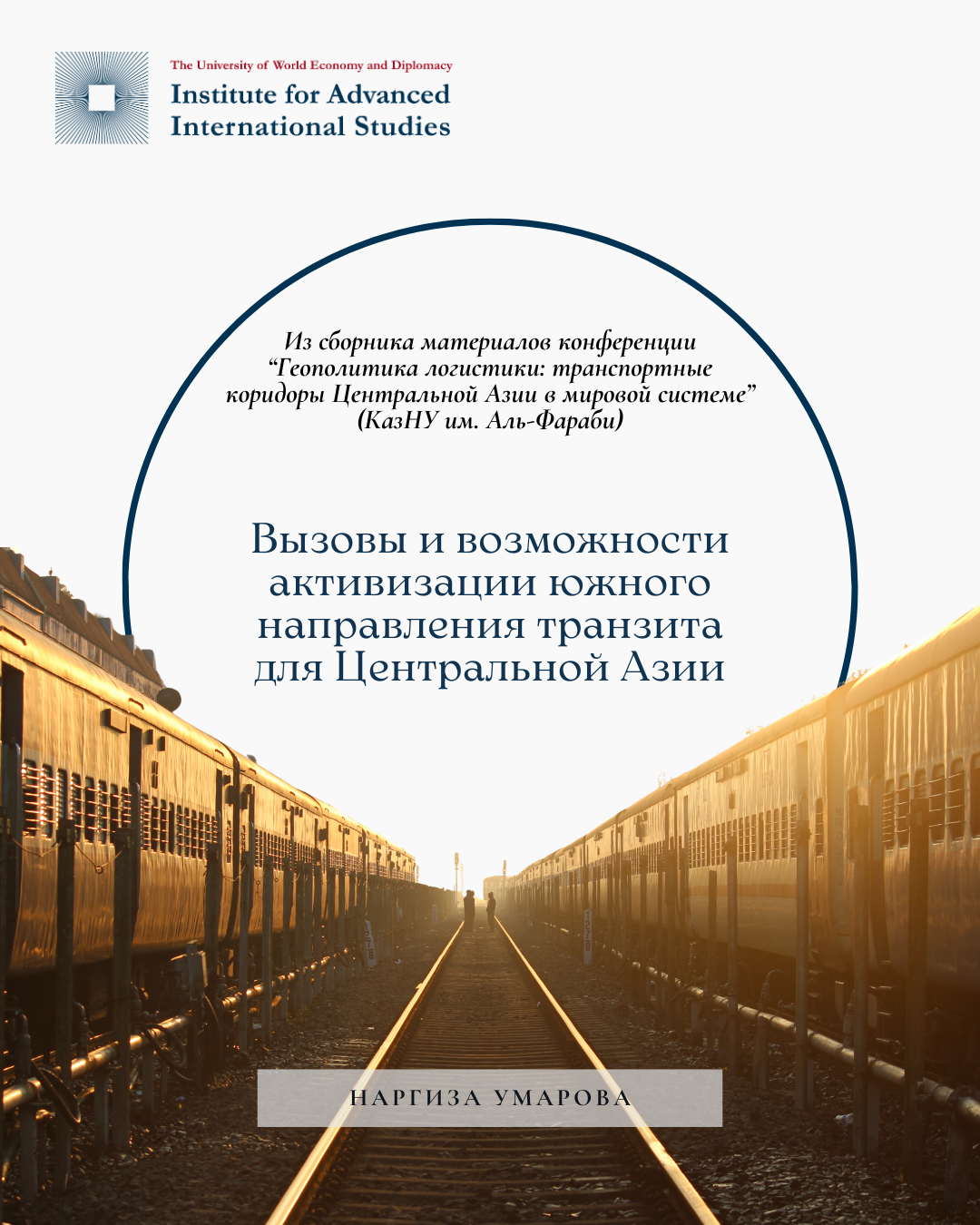In an article by Rustam Makhmudov, Leading Research Fellow at the Laboratory of Anthropology and Conflict Studies, published in a collection of materials from the international conference “Central Asia Facing the Challenges of Global Economic Transformation: Assessment and Forecasting”, organized by UWED in partnership with the Rosa Luxemburg Foundation’s Representative Office in Central Asia, offers a comprehensive interpretation of global challenges to security and stability in Central Asia in the period up to 2030–2040 through the prism of Giovanni Arrighi's theory of systemic cycles of capital accumulation. The author proceeds from the thesis that the modern world system is undergoing profound structural transformations associated with the weakening of American hegemony, increased competition between the US, China, the EU, and the countries of the Global South, as well as the acceleration of the Fourth Industrial Revolution.
The article pays particular attention to the analysis of US policy, primarily during Donald Trump's presidency, which the author views as an attempt to prevent the transition of the American accumulation cycle from a “signal” to a “terminal” crisis. To this end, Makhmudov uses three analytical indicators, “profit norm,” “Lippmann gap,” and “determination indicator”, to assess the ratio of US resources to global obligations, the level of their institutional stability, and their capacity for structural economic restructuring. It is shown that the growth of financialisation, public debt and foreign policy commitments increases the risks of systemic turbulence at the global level.
In the regional dimension, the author emphasizes that the key threats to Central Asia are the vulnerability of logistics and trade chains, a possible shift in the balance of external forces, risks of destabilization in the security sphere (including those related to the situation in Afghanistan), and restrictions on access to advanced technologies. At the same time, the weakening of the dominant center of the world system opens new opportunities for the countries of the region, primarily to strengthen their own agency, deepen regional consolidation, and position themselves more flexibly in the emerging multipolar order.
Rustam Makhmudov concludes that the stability and security of Central Asia in the context of global transformations will depend on the ability of the countries of the region to combine a strategy of balancing external actors with the development of their own economic, technological, and institutional potential. Such an approach, according to the author, will not only minimize risks, but also allow the current turning point to be used to strengthen Central Asia's role in the new architecture of international relations.
* The Institute for Advanced International Studies (IAIS) does not take institutional positions on any issues; the views represented herein are those of the author(s) and do not necessarily reflect the views of the IAIS.

